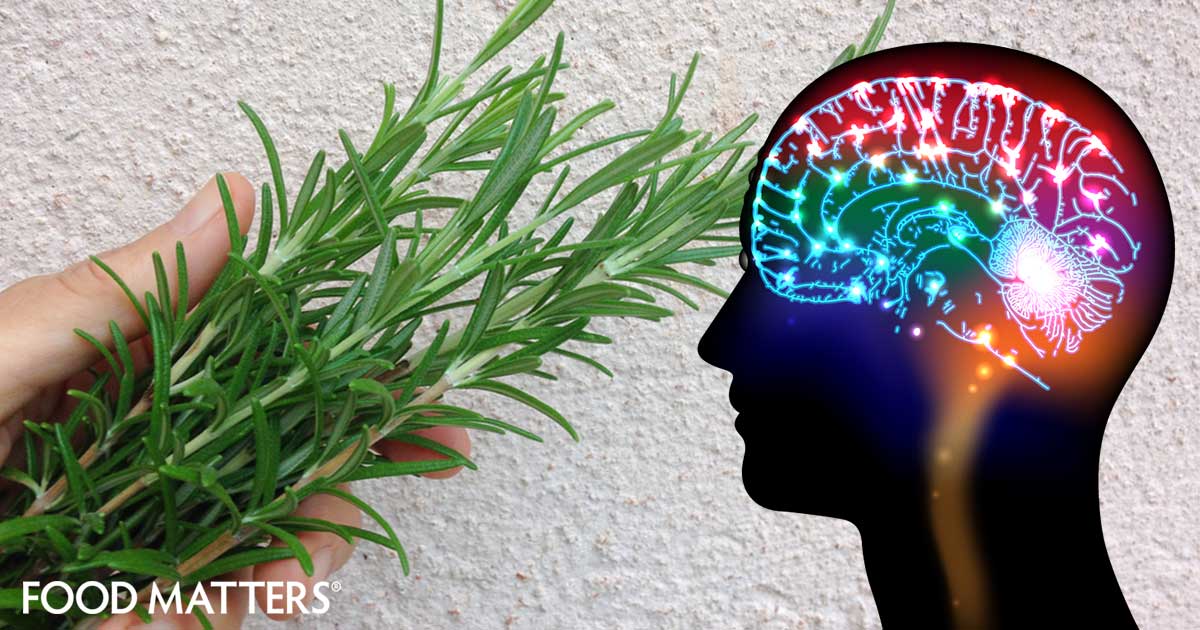Exploring Herbal Remedies for CFS
Chronic fatigue syndrome (CFS), also known as myalgic encephalomyelitis (ME), is a complex and debilitating condition characterized by persistent, unexplained fatigue that significantly impacts daily life. While conventional medical approaches exist, many individuals seek complementary therapies, including herbal remedies, to manage their symptoms. The use of plants for medicinal purposes has a long and rich history, with many cultures employing herbal approaches to address fatigue and related conditions.
Historical Use of Herbal Remedies for Fatigue
Herbal medicine has been a cornerstone of healthcare systems for millennia, with various cultures utilizing plants to combat fatigue and related symptoms. Traditional Chinese Medicine (TCM), for example, employs a variety of herbs to address Qi deficiency, a concept often associated with fatigue and low energy. Ayurveda, the traditional Indian system of medicine, also incorporates numerous herbs to boost vitality and address imbalances believed to contribute to fatigue. Ancient Greek and Roman texts also document the use of specific herbs to improve energy levels and alleviate tiredness. These historical uses, while not always scientifically validated by modern standards, provide a foundation for exploring the potential benefits of certain herbs in managing CFS symptoms.
Commonly Used Herbal Remedies for CFS
Several herbal remedies have gained attention for their potential to alleviate symptoms associated with CFS. It is crucial to remember that these remedies are not a cure for CFS and should be used in conjunction with, and not as a replacement for, medical advice. Always consult with a healthcare professional before starting any new herbal supplement, especially if you are taking other medications.
| Herb | Reported Benefits | Potential Side Effects | Dosage Recommendations |
|---|---|---|---|
| Rhodiola Rosea | Increased energy levels, improved mood, reduced fatigue, enhanced cognitive function. | Mild gastrointestinal upset, insomnia (at higher doses), potential interactions with certain medications (e.g., antidepressants). | 100-600mg daily, typically in divided doses. Specific dosage should be determined based on individual needs and tolerance. |
| Ashwagandha | Reduced stress and anxiety, improved sleep quality, increased energy levels, enhanced physical performance. | Gastrointestinal upset, drowsiness, potential interactions with certain medications (e.g., thyroid medications). | 300-600mg daily, typically in divided doses. Dosage should be adjusted based on individual response and tolerance. |
| Ginseng (Panax ginseng) | Increased energy levels, improved cognitive function, enhanced immune function, reduced fatigue. | Insomnia, headache, gastrointestinal upset, potential interactions with certain medications (e.g., blood thinners). | 200-400mg daily, typically in divided doses. Dosage should be individualized and monitored carefully. |
Mechanisms of Action of Herbal Remedies

Understanding how herbal remedies might alleviate Chronic Fatigue Syndrome (CFS) symptoms requires exploring their potential effects on various bodily systems. While research is ongoing and definitive mechanisms remain unclear for many herbs, several potential pathways are being investigated. These include modulation of the immune system, influence on the hypothalamic-pituitary-adrenal (HPA) axis and stress response, and support for energy production pathways.
Many herbal remedies used for CFS target multiple pathways simultaneously, making it difficult to isolate specific mechanisms. The complexity of CFS itself, with its varied symptoms and likely underlying causes, contributes to this challenge. It’s crucial to remember that the information below represents current understanding and ongoing research. Individual responses to herbal remedies can vary significantly.
Immune System Modulation
Several herbs show promise in modulating the immune system, a system often dysregulated in individuals with CFS. Some herbs, like astragalus, are considered immune stimulants, potentially boosting the body’s ability to fight off infections and restore immune balance. Others, such as echinacea, may exhibit more targeted immunomodulatory effects, influencing specific immune cells or pathways to address imbalances. The precise mechanisms are still being elucidated, but it is hypothesized that these herbs may achieve this through influencing cytokine production or modifying the activity of immune cells like T cells and B cells. For instance, studies suggest that astragalus may increase the production of interferon-gamma, a cytokine crucial for immune defense against viral infections, a common trigger of fatigue.
HPA Axis Regulation and Stress Response, Best herbal remedies for chronic fatigue syndrome
The HPA axis plays a crucial role in the body’s stress response. Chronic stress is frequently implicated in CFS, and imbalances in the HPA axis can lead to various symptoms. Adaptogens, such as rhodiola and ashwagandha, are believed to help the body adapt to stress by normalizing HPA axis activity. This normalization may involve influencing the production of cortisol, the primary stress hormone, and promoting a more balanced response to stressors. For example, studies suggest that rhodiola may reduce cortisol levels in individuals under chronic stress, potentially alleviating fatigue and improving cognitive function associated with stress-related HPA axis dysregulation. Ashwagandha’s mechanism may involve influencing GABA receptors in the brain, reducing anxiety and promoting relaxation.
Energy Production Support
CFS is often characterized by profound fatigue and reduced energy levels. Some herbal remedies may support energy production through different pathways. For instance, certain B vitamins, often found in herbal combinations, are essential co-factors in energy metabolism. They play critical roles in the Krebs cycle and electron transport chain, the key processes involved in generating cellular energy (ATP). Similarly, herbs rich in antioxidants, such as ginseng, may help mitigate oxidative stress, which can impair mitochondrial function and reduce energy production. Ginseng’s potential to enhance energy levels is thought to be related to its ability to stimulate adenosine triphosphate (ATP) production and improve mitochondrial efficiency. While the exact mechanisms remain to be fully elucidated, the combined effect of these actions might contribute to increased energy and reduced fatigue.
Scientific Evidence and Research on Herbal Remedies for CFS: Best Herbal Remedies For Chronic Fatigue Syndrome

The scientific evidence supporting the use of herbal remedies for Chronic Fatigue Syndrome (CFS) is still limited and often inconclusive. Many studies are small, lack rigorous methodology, or suffer from biases that make it difficult to draw definitive conclusions about efficacy. However, some research suggests potential benefits for certain herbs, while others show little or no effect. It’s crucial to approach this information with caution and consult with healthcare professionals before using any herbal remedy for CFS.
Best herbal remedies for chronic fatigue syndrome – Existing research on herbal remedies for CFS is characterized by a lack of large-scale, randomized controlled trials (RCTs), the gold standard for evaluating treatment effectiveness. Many studies rely on smaller sample sizes and less robust methodologies, leading to uncertainty in the interpretation of results. Furthermore, the heterogeneity of CFS itself—with its varied symptoms and underlying mechanisms—complicates research efforts. The diverse range of herbal remedies explored adds another layer of complexity.
Summary of Research Findings on Herbal Remedies for CFS
While the evidence base is weak, some studies have shown promising, albeit preliminary, results for certain herbal remedies in managing some CFS symptoms. These findings should be interpreted cautiously, pending further research.
- Rhodiola rosea: Some studies suggest Rhodiola rosea may improve fatigue and cognitive function in individuals with CFS. However, the quality of evidence varies considerably across studies, and larger, more rigorous trials are needed to confirm these findings. One small study showed a statistically significant improvement in fatigue scores in participants taking Rhodiola compared to a placebo group. However, the study’s limitations include a small sample size and a lack of long-term follow-up.
- Eleutherococcus senticosus (Siberian ginseng): Limited research suggests potential benefits in improving energy levels and reducing fatigue in CFS patients. Again, the quality of the evidence is variable, and larger trials are necessary to confirm these preliminary observations. One study showed a modest improvement in self-reported fatigue, but lacked a placebo control group, limiting the interpretation of the results.
- Other Herbs: Research on other herbs, such as ginseng, astragalus, and St. John’s wort, for CFS is even more limited. While anecdotal evidence and traditional medicine practices suggest potential benefits, scientific studies are largely lacking. Existing research is often based on small sample sizes or lacks proper control groups, making it difficult to determine if observed effects are due to the herbal remedy or other factors.
Limitations of Current Research and Areas Requiring Further Investigation
Several significant limitations hinder the current understanding of herbal remedies’ effectiveness for CFS. Addressing these limitations is crucial for advancing the field and providing reliable evidence-based recommendations.
- Small sample sizes: Many studies include a small number of participants, limiting the statistical power and generalizability of the findings.
- Lack of randomized controlled trials (RCTs): The absence of high-quality RCTs with appropriate control groups makes it difficult to definitively establish cause-and-effect relationships between herbal remedies and CFS symptom improvement.
- Heterogeneity of CFS: The varied and complex nature of CFS makes it challenging to conduct research that accounts for the wide range of symptoms and individual responses to treatment.
- Standardization of herbal preparations: Inconsistencies in the preparation and standardization of herbal remedies across studies make it difficult to compare results and draw reliable conclusions.
- Lack of long-term follow-up studies: Most studies do not assess the long-term effects of herbal remedies on CFS symptoms, hindering the understanding of sustained benefits and potential adverse effects.
- Need for mechanistic studies: Further research is needed to understand the underlying mechanisms by which herbal remedies might alleviate CFS symptoms. This knowledge is essential for developing more targeted and effective therapies.
Case Studies or Examples of Successful Herbal Remedy Use for CFS (Illustrative)

This section presents hypothetical case studies to illustrate the potential benefits of herbal remedies in managing Chronic Fatigue Syndrome (CFS) symptoms. It is crucial to remember that these are illustrative examples and individual responses to herbal remedies can vary significantly. Always consult with a healthcare professional before starting any new herbal treatment.
Case Study 1: Rhodiola Rosea for Mental Fatigue and Brain Fog
Sarah, a 38-year-old graphic designer, experienced debilitating mental fatigue and brain fog for over two years, significantly impacting her work and personal life. She had difficulty concentrating, felt mentally exhausted even after minimal tasks, and struggled with memory issues. After consulting with a naturopathic doctor, she began taking Rhodiola Rosea, a known adaptogen, twice daily. Over a period of eight weeks, Sarah reported a gradual improvement in her mental clarity. She experienced increased focus, better memory recall, and a reduction in mental fatigue. This allowed her to manage her workload more effectively and enjoy increased engagement in her hobbies. She also noted an improvement in her mood and a reduction in feelings of anxiety, often associated with her CFS.
Case Study 2: Ashwagandha for Sleep Disturbances and Stress Reduction
Mark, a 45-year-old accountant, suffered from chronic insomnia and overwhelming stress due to his CFS. He experienced frequent nighttime awakenings, resulting in daytime sleepiness and impacting his concentration and productivity at work. He also struggled with anxiety and irritability. His naturopathic doctor recommended Ashwagandha, an adaptogen known for its stress-reducing and sleep-promoting properties. After taking Ashwagandha for six weeks, Mark reported a significant improvement in his sleep quality. He experienced fewer nighttime awakenings, slept more soundly, and woke feeling more rested. He also noted a reduction in his stress levels and an improvement in his mood, allowing him to better manage his daily tasks and engage more positively with his family.
Case Study 3: Milk Thistle for Liver Support and Fatigue
Anna, a 29-year-old teacher, experienced persistent fatigue and digestive issues associated with her CFS. She also suffered from occasional bouts of nausea and bloating. Concerned about the potential impact of medication on her liver, she chose to explore a natural approach. Her naturopathic doctor recommended Milk Thistle, known for its liver-protective properties and ability to support overall detoxification. After three months of taking Milk Thistle, Anna reported a noticeable reduction in her fatigue levels. She also experienced fewer digestive issues, improved appetite, and a significant improvement in her overall energy levels. The improved liver function seemed to contribute to her increased energy and overall well-being.



:max_bytes(150000):strip_icc()/VWH_Illustration_10-Healing-Herbs-With-Medicinal-Benefits_Illustrator_Mira-Norian_Title_Final-47ce13013375448c9e8e7e8c21fb50f7.jpg)

